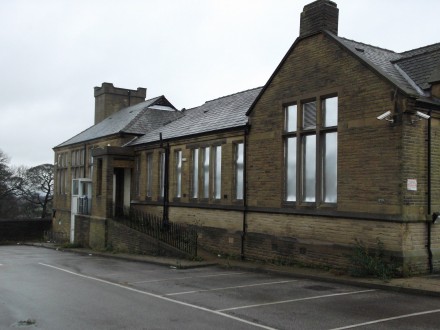With this year’s forthcoming winter presenting the possibility of an El Nino effect, as well as the usual ‘unsettled’ predictions which regularly feature in British winters, it makes sense to take preventative action to keep your property safe from the worst of cold weather. Any type of property can be affected, although vacant properties can be particularly vulnerable, so what do you need to be aware of and what can you do?
Home alone
If your property’s vacant, careful action to prevent cold weather damage also has the advantage of additionally securing your property from trespassers and opportunists looking to gain entry for criminal purposes.
Inspection for prevention
- Inspect the property thoroughly, before vacating or before autumn settles in. Thorough inspection should include all internal and external aspects of the premises, including masonry, roof, doors and windows.
- Inspect gutters to ensure these are clear and are securely attached, so that there will be no leaks, gutter flooding or risk of them being stripped by high winds.
- Inspect all property boundary fixtures such as walls and fences, to ensure they will be secure against wind and weather damage as well as potential intruders.
- Identify any of the fabric of the building structure or interior which might be attractive to opportunist thieves, such as valuable metals like copper, lead and aluminium.
Of course, a thorough inspection will highlight any problems, but that’s not enough in itself to prevent any from happening. Actual prevention means taking action now, before it’s too late.
Action to avoid problems
- Have any structural problems fixed before the winter sets in, as the additional weight of snow on a roof, for example, can cause a roof to collapse, causing significant internal and external, damage particularly once the snow melts.
- Carrying out masonry repairs will help prevent moisture seeping into the property or undermining the structure.
- As well as fixing any plumbing issues, insulating pipes, turning off the water at the mains stopcock and draining down the system are all actions which can help prevent plumbing from freezing, fracturing and flooding during the colder months. It’s even possible to securely lock the stopcock so that vandals are unable to reconnect the supply.
- If valuable metals are part of interior fixtures, identify how to professionally secure the property so that opportunist thieves cannot break in and strip the premises of these fixtures. Such acts of theft are well known for leaving properties additionally vulnerable to the effects of winter weather, particularly water damage, so securing the property with security screens which prevent thieves from seeing items inside will be of additional benefit.
- As well as preventing visibility to the interior of your property, installing security shutters, screens or grilles to access points such as windows and doors can also be cost-effective in keeping vacant properties secure from both weather and trespassers.
Keeping a check
Another important aspect of prevention is that it’s ongoing! Even if you’ve given your property a full inspection and feel that you have everything in place to minimize the potential for damage to your property from cold weather, it won’t be enough to do it just the once – regular checks are the key to making your prevention pay. Regular inspections over the winter should specifically check:
- Gutters: although they may have been cleaned, your clear gutters can easily become blocked by debris and even by snow melting from the roof, which could refreeze as it pools in the gutters. This can cause guttering to fracture, or forces water back into the roof space where it could cause internal damage.
- Roof space: always check the roof space on each visit as although the system may have been drained, water could still access the property via gutter and chimney problems, or tiles dislodged by high winds.
- Damp spots: internal damp and damp mould may appear as a result of leaks, lack of ventilation and weather damage. Damp mould is easy to deal with early on, but can cause health risks as well as costly repair if left unchecked.
- Windows, doors and access points: these need regular checking with two things in mind – weather damage and trespassers, both of which can make access points additionally vulnerable. Finding evidence of an attempted forced entry or severe weathering highlights the need to take additional action such as installing grilles or shutters.
- Ensure that neighbours know who to contact in the event of problems.
Finally, and particularly if your property’s vacant, as you take prompt action to fix any problems before the winter sets in, keep all evidence such as invoices and inspection reports, as many insurers are now require evidence of good maintenance for vacant properties and failure to comply or demonstrate this can invalidate insurance and mean a costly repair bill.


